Wednesday Feb 18, 2026
Wednesday Feb 18, 2026
Thursday, 7 February 2019 00:29 - - {{hitsCtrl.values.hits}}
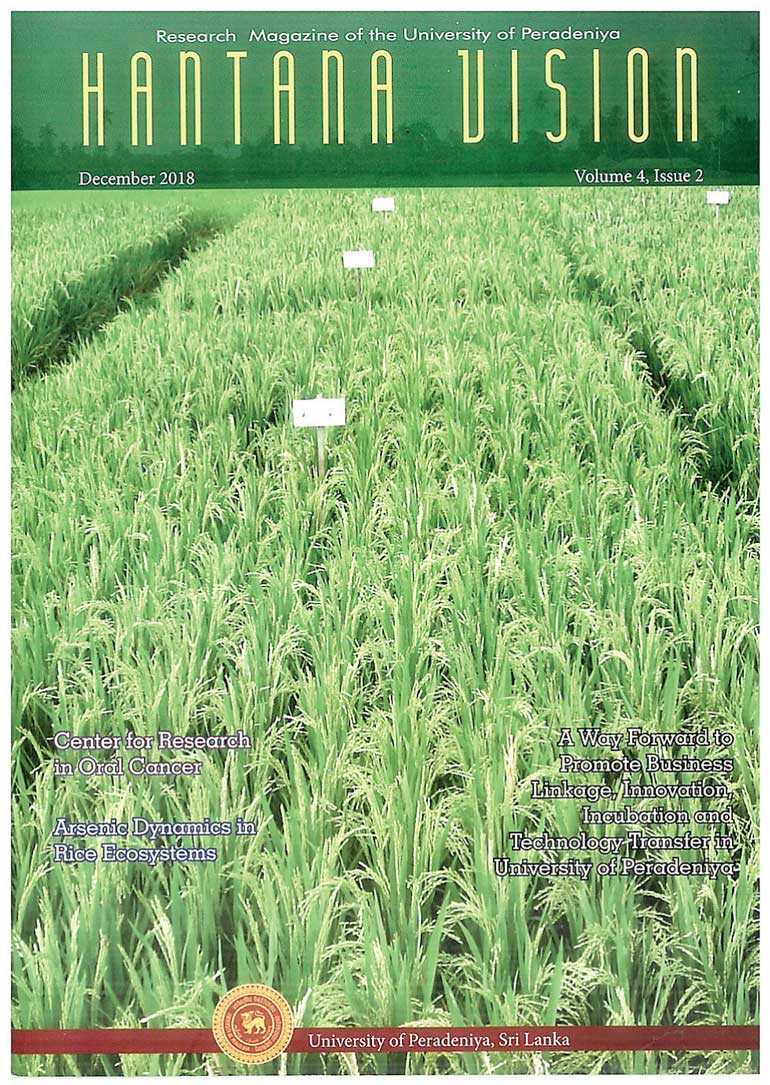
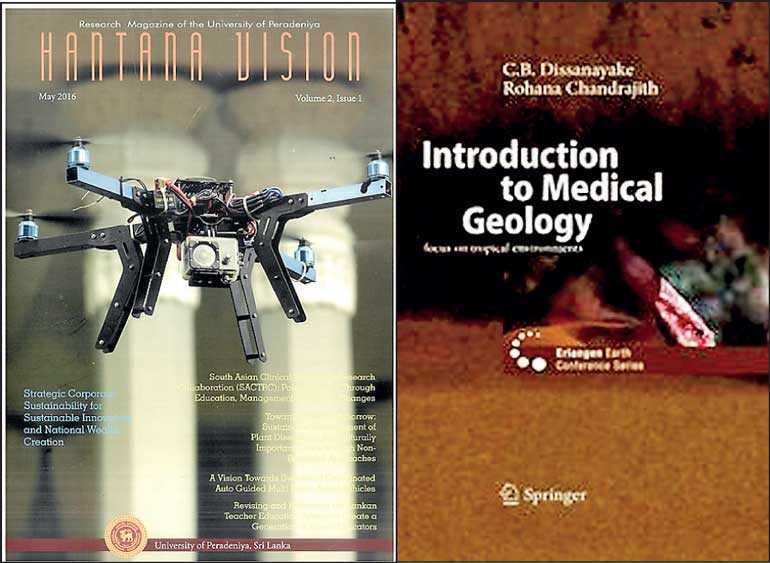
There is always the question, what have our universities contributed by way of research towards national needs and to the cause of development? This question is asked in many ways in many a forum.
I am quite sure that most of those who question have not taken much effort in engaging researchers or even staff from universities in trying to get an answer. If one obviously cares and one seeks an answer to this question, one may find some quite interesting contributions and data – not only on a national scale but on a global scale as well. 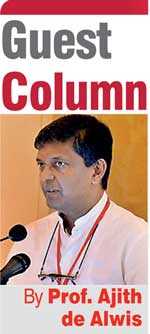
One aspect I would readily agree – Public sector universities have never been very good at marketing themselves even if they teach marketing. A paradox but understood in some way when you find out that the students are simply sent to all the universities with universities really having nothing to do with the process.
No one needs to market themselves as students simply have to fight it out for the places on offer and then join in. Some try to increase the intake without much effort in providing additional resources as there is a steady demand and we have significantly more unsatisfied students due to quite limited entry opportunities.
Unlike in other countries, once increased there is also no chance of reducing intakes if the job market has changed in the years to come. The stress being on undergraduate enrolments and teaching, our universities have not been able to position them as research universities.
This vital aspect today is receiving serious attention by policy makers. A welcome change, which hopefully will not be late in materialising, as it is important to Sri Lanka. It is not again waking up to find suddenly the university has been transformed into a research university but one has to work hard and smart in getting to this position.
One must not forget that better awareness creates better engagement and chances for ideas to reach market exponentially increases. Some impactful research and strong positive communication is thus the order of the day for our public universities.
R&D spending
Sri Lanka is not a well-known spender in research and development and still spends a meagre 0.16% of our GDP on this endeavour. This is woefully inadequate to support a strong R&D program. As one should know this 0.16% is well below what is required of an economy of our size. Only when we see the breakdown of our economy do we see that R&D has precious little to do with the economy of our country. Well definitely at present the two are delinked.
The battle of the Fall Armyworm is an interesting saga playing out in the open right now. The battle with asbestos, MCPA and glyphosate and also on plastics – the normal, biodegradable and the oxobiodegradable – too is playing out in the open though some of these fires may be smouldering to different degrees today.
Of course we do have the long standing CKDu which recently is not exactly occupying the centre pages and headlines and when we have to depend on an unscientific media, evidence-based decision making is always at a low point. There is always an opportunity and a need for research as can be seen.
Hantana Vision
When a copy of Hantana Vision landed on the table, it was quite refreshing reading. One certainly is informed of happenings – both past and present – of what is going on at University of Peradeniya. This is just the type of communication needed and UoP is perhaps the only university doing a publication like this. We do have normal newsletters but they cover quite general events and this is specifically on research – the most important.
The International Research Affairs Office of UoP publishes Hantana Vision biannually, features research, discussions with researchers and specific project groups and brings out these stories to the general public. As UoP is the most diverse of our universities in Sri Lanka, the magazine too discloses the diverse multidisciplinary research that is taking place in the university. Hopefully the e-version of the magazine too has an extended circulation list. Now corporates including other media can use this disseminated knowledge to further use.
As per Dr. Shameen Jinadasa, Hantana Vision is the symbol of the proud research culture of University of Peradeniya. Today among all universities and research institutes UoP leads in research analysis in terms of overall quality and is a close second to University of Colombo on quantity.
Comparing countries it is heartening to note that the research quality has been well above the global average as well as better than some of the economically stronger countries. What if more support is given and the decision makers make an effort to connect? Issues of Hantana Vision can be accessed from https://www.pdn.ac.lk/uop/iao/rm/v4i2/index.html
Communication is key
Prof. Nandalal who is Editor-in-Chief of Hantana Vision acknowledges the need and the issue in his editorial – “Communication of research findings to the general public is a prime responsibility of researchers though they are not sufficiently trained for that task… Their ability to communicate science to the general public is questionable.”
UoP’s activities in internal training for its staff in communications is indicated. Hantana Vision is quite specific about communicating to the general public in simple language. Hence this effort is to be appreciated very much. One must note that in universities today, of course outside Sri Lanka, there are specific teams available to convert research findings of researchers into specific journal publications and other communications.
External communications are held in such a high value because international ratings matter a lot. These teams receive incentives when the papers are published and ratings achieved. Specific content managers too exist considering the need to be present in the all-important social media space another weak aspect of our researchers. Well you cannot excel in research if you are to stay glued to a mobile screen!
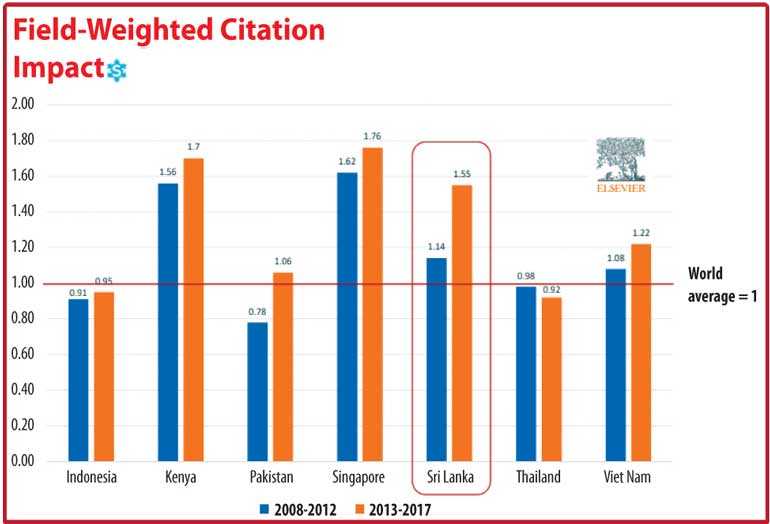
The local researcher constrained in many ways in doing research is also constrained somewhat in the communication side as well due to these recent developments elsewhere not being executed in the local system. Though professional firms to support research communications do not exist in Sri Lanka as yet, shady thesis and project writing on demand has taken root in supporting the mushrooming higher education sector. We obviously excel in areas where one should not excel!
Inter-disciplinary research
Reading the news I found that UoP has given birth to inter-disciplinary research in Sri Lanka through the initiative of earth scientists. The findings listed under that are quite interesting.
A landmark research paper had been the one by Dissanayake and Senaratne (1982) revealing for the first time in history that incidence of cardiovascular diseases is relatively less in people who drink hard water.
National water supply schemes had been forever impacted by the research and the publication of the Hydrogeochemical Atlas of Sri Lanka. All these work had led to pioneering the subject of Medical Geology. The international publication (of Prof. C.B. Dissanayake and Prof. Chandrajith) is a best seller with the eversion downloaded around 9,200 times and a recommended textbook externally.
Knowing the expert knowledge available in our institutions of this nature, considering the infamous incident at Rathupaswala perhaps is an indication that the gap that exist between the local decision makers and the universities can only be declared as significant.
A lighter yet instructive write-up is the discussion with Prof. Ranaweera – Old Morris Minor takes him places. His unique structural engineering contributions to analysis of ancient stupas is interesting where he uses modern analytical techniques and confirms the shapes selected by the ancient builders to be the most appropriate.
Sri Lanka witnesses three to four citizens succumbing to oral cancer every day and the agent is the traditional habit of betel chewing. The significance of the research by the Centre for research in Oral Cancer at UoP is globally recognised. I can only give a glimpse to its contents. It provides some answers to the question that I indicated at the beginning.
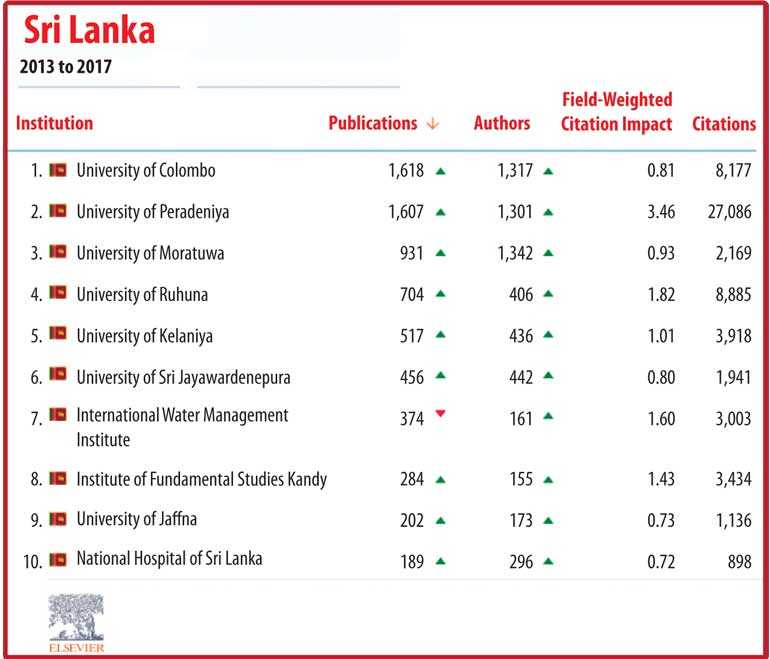
A great effort
UoP with much history definitely has research one can boast of. As indicated they are taking steps to support the current needs. The rest of the university community too should take notice. The question raised had been a general one asked from all!
There is definitely a need for change in the way research carried out by the local universities and ensuring impact should be kept in mind. Selection, ideation, research and execution and finally communication perhaps has to be elevated a notch higher. The more recent universities definitely need support in balancing the significant education demand while having to allocate some quality time for research.
Thank you Hantana Vision – it was pleasant reading on important matters and hope it can be a quarterly. I know that the collective effort must be acknowledged as the expenditure of time and energy is to communicate to the public and knowing very well that there are not much rewards for this effort other than the happiness of serving the common man.